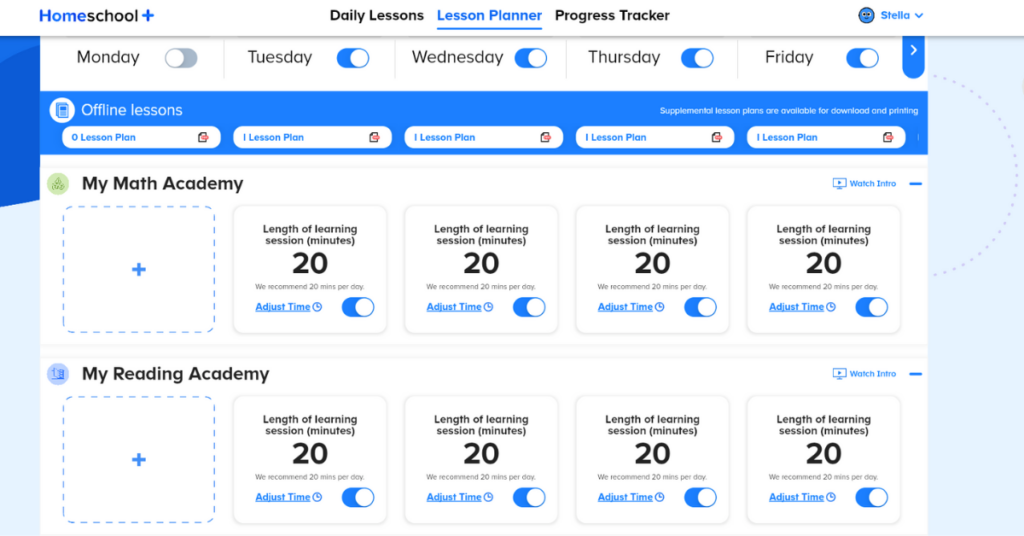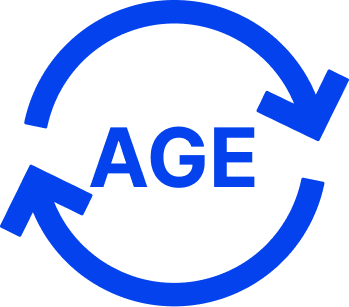Connecticut Homeschooling Laws and Resources
Homeschooling in Connecticut is an excellent option with minimal requirements. Our guide on homeschooling in Connecticut will help you get started.
Homeschooling in Connecticut Overview
Notice of Intent Required: Yes
1 Option for Homeschooling: Home Education
Subject or Curriculum Requirements: Yes
Attendance Age Requirements: 7-17
Record-Keeping Requirements: No
Assessments or Evaluations Required: No
Proof of Immunization Required: Exemption Allowed
Table of Contents
Connecticut Homeschooling Laws and Regulations
How to Start Homeschooling
Notice of Intent
Mandatory School Age
Subject and Curriculum Requirements
Record-Keeping Requirements
Required Immunizations
Resources for Homeschooling Families in Connecticut
Homeschool Groups and Co-ops
Organizations and Associations
Sports Opportunities
Homeschool Field Trips
Special Education Homeschoolers
How Homeschool+ Curriculum Can Help
Homeschool FAQ

How to Start Homeschooling in Connecticut
Starting your homeschool journey in Connecticut requires a few important steps. Home educators must file a Notice of Intent (NOI) to homeschool and provide an outline of their curriculum and educational objectives.
Additionally, home educators must maintain attendance and academic progress records and participate in an annual review (optional in some areas). The state also requires instruction in certain subjects, such as math, reading, and social studies. With these simple requirements, Connecticut is a fantastic place for families interested in homeschooling their children. Let’s look deeper at the steps you’ll need to take to start homeschooling in Connecticut.
Notice of Intent for Homeschooling in Connecticut
To begin homeschooling in Connecticut, you’ll need to complete the Intent to Homeschool form for each school-aged child you plan to homeschool. This document is often called a Notice of Intent (NOI). Plan to keep a signed copy in each child’s homeschool folder.
TIP: The NOI must be submitted ten days before you begin homeschooling and will be effective for one year.
The NOI must be filed with the local superintendent’s office and should include an outline of the proposed curriculum and educational objectives for the upcoming school year. Once the required paperwork has been filed, parents can begin homeschooling their children.
Mandatory School Age in Connecticut
In Connecticut, all children aged 7–17 must attend school under compulsory education laws. In addition to public and private school, home education is one way to fulfill this obligation.
Connecticut Homeschool Subject and Curriculum Requirements
If you plan to homeschool in Connecticut, you’ll want to ensure your curriculum teaches the core subjects.
Homeschooled children are required to learn the following:
- Reading
- Writing
- Spelling
- Grammar
- Math
- US History
- Citizenship (including town, state, and federal government)
There is no required curriculum, so you can approach these subjects in the best way for your family.
Connecticut Homeschool Record-Keeping Requirements
The Connecticut homeschool statute does not require record keeping, but proof of education can be beneficial for post-high school plans. Homeschool records can also be helpful if there are any questions about your homeschool or if you move to another state.
We recommend you keep the following records for your homeschool:
- Attendance records
- Samples of your student’s schoolwork
- Correspondence with school officials (including withdrawal forms and annual NOIs)
- A portfolio that includes test results, extracurricular activities, a sample monthly schedule, learning objectives, etc.
Required Immunizations for Homeschoolers in Connecticut
Connecticut permits exemptions from required immunizations for homeschooled children. This allows parents/guardians to opt out of vaccinating their children for religious or personal beliefs. It is important to note that this exemption does not apply to children who attend public or private schools in Connecticut.
Resources for Homeschool Families in Connecticut
Many homeschool families utilize resources to enrich education, foster socialization, and empower home education. These essential connections often come from homeschool groups, co-ops, or larger associations. You’ll find numerous options for support and fun in Connecticut’s diverse homeschool community.
Homeschool Groups and Co-ops in Connecticut
Joining a homeschool group or co-op can be a great way for families in Connecticut to connect with other homeschoolers. Homeschool groups and co-ops vary in size, structure, and focus but often offer opportunities for socialization, academic enrichment, and collaboration among homeschooling families.
Many homeschool groups and co-ops offer field trips, classes, workshops, and other activities for homeschoolers. They also often provide friendship, support, and advice for home educators and children.
If you’re hunting for a group or co-op to join in Connecticut, CT Homeschoolers Inclusive is an excellent place to start. The online group is over a decade old, boasts over 4,000 members, and is incredibly active.
Check out these other popular homeschool groups and co-ops in Connecticut:
Shoreline Homeschoolers of CT
Southeastern CT Homeschoolers
Fairfield County CT Homeschoolers
CT Homeschool Social Group
Homeschool Friends of Eastern CT
Homeschool Organizations and Associations
Homeschool organizations and associations are fantastic resources that provide a wide range of support for homeschool families. They commonly offer access to events, information, resources, legal support, and even advocacy efforts. Homeschool associations are more formal than a typical group or co-op and may charge membership fees.
Connecticut Homeschool Network (CHN) is a statewide, online-based homeschooling organization. They aim to inform, empower, and foster community among home educators. As of 2020, CHN had 20,000 Connecticut families as members.
The Education Association of Christian Homeschoolers of Connecticut (TEACH) is a membership-based association with the mission of advocating for homeschool freedoms and empowering home educators. They offer community, support, and activities.
Special Education Homeschoolers
Connecticut does not recognize homeschooled students as falling into the private school category.
While this is good for those wishing to have little oversight and regulations involved with their homeschooling endeavors, it can prove problematic for families with special needs children.
Without classification as private school students, special needs homeschoolers in Connecticut are ineligible to receive services through federal or state monies. That means that homeschooling families must pay out of pocket or through their insurance (if applicable) for the special needs services that their child(ren) needs.
Currently, there are no additional regulations in the law about homeschooling a student with special needs in Connecticut.
Sports Opportunities for Homeschoolers in Connecticut
One of the top benefits of homeschooling is having ultimate flexibility in scheduling activities, including sports!
As a homeschool family, you can participate in sports leagues, clubs, and competitive teams or join a local homeschool sports co-op. As you explore the variety of options in Connecticut, you’ll find that many businesses and organizations offer activities specifically for homeschoolers, while others invite homeschoolers to participate in their regular programs.
Homeschooled children in Connecticut will not be able to participate in sports coordinated by their local public schools. The Connecticut Interscholastic Athletic Conference (CIAC) oversees these leagues, and their bylaws don’t allow homeschooled children to participate.
Here are a few ways to get involved in sports as a homeschooling family in Connecticut:
Group Name & Website | What Sports They Cover | What Area in Connecticut |
CrossFit, swim, gymnastics, rock climbing | Meriden | |
Sailing | Stonington | |
Strength training, coordination, endurance | Enfield | |
Yoga, Tae Kwon Do | Berlin |
Connecticut Homeschool Field Trips
Connecticut is rich in history, culture, and natural beauty and provides homeschoolers with many opportunities to explore and learn about the state through field trips.
Here are five unique field trip ideas for homeschoolers in Connecticut:
The Mark Twain House and Museum–Located in Hartford, this historic home was the residence of author Mark Twain and is now a museum featuring exhibits and tours highlighting his life and work. Homeschoolers can take a guided tour of the house, learn about Twain’s writing process, and explore the interactive exhibits.
The Goodwin Conservation Center–The Connecticut Department of Energy and Environmental Protection runs this Hampton nature center. Homeschoolers can participate in educational programs and outdoor activities that teach about Connecticut’s natural resources and wildlife.
The Florence Griswold Museum–Head to Old Lyme to visit this museum featuring the home of the artist colony leader Florence Griswold and an art museum with works by American impressionists. Homeschoolers can take guided tours, participate in hands-on art activities, and learn about the history of the Lyme art colony.
The Submarine Force Museum–Located in Groton, this museum features the history of the US Navy’s submarine force. Homeschoolers can enjoy a guided tour of the submarine USS Nautilus, the first nuclear-powered submarine, and learn about the technology and history of submarines.
The Mashantucket Pequot Museum and Research Center–This Mashantucket museum is dedicated to the history and culture of the Mashantucket Pequot Tribe. Homeschoolers can explore interactive exhibits, take guided tours, and learn about the traditional and contemporary life of the tribe.
In addition to these unique field trip ideas, homeschoolers in Connecticut can also explore the state’s many parks, historic sites, and cultural institutions. From the Mystic Seaport Museum to the Yale Peabody Museum of Natural History, Connecticut has endless opportunities to learn and explore.
Many field trip destinations offer homeschool students discounts or free days. You can hunt for these deals by typing “homeschool” in the search bar of their website.
How Homeschool+ Curriculum Can Help You Homeschool in Connecticut
Many Connecticut home educators find planning and delivering all areas of their child’s education intimidating. Homeschool+ Curriculum is here to help. It includes fully adaptive math and reading programs for children ages 4 to 8; twelve online courses covering art, science, social studies, and more; and robust home educator tools that support your unique homeschool. Each course is customizable and created by curriculum experts.
The freedom and flexibility of Homeschool+ extend to the Home Educator Tools, which include a progress tracker for each child and a lesson planner.

The Lesson Planner lets you customize the Homeschool+ curriculum by adding, removing, or moving lessons to meet the unique needs of your homeschool. Complete Lesson Plans support offline learning, providing three levels of exploration to take learning into the real world.
Your passion for homeschooling plus our powerful mastery curriculum can help your child build a strong foundation for success.
Learn more about the Homeschool+ Curriculum programs and how they can help your homeschoolers learn and grow.
Connecticut Homeschool FAQ
Do you get paid to homeschool in Connecticut?
Unfortunately, Connecticut currently does not offer financial incentives or reimbursements for homeschooling. However, there are options to minimize the cost of homeschooling.
TIP: Utilizing the public library system and checking for free or discounted activities are two ways to reduce homeschooling costs.
Is Connecticut homeschool friendly?
Connecticut is known to be a very homeschool-friendly state. Connecticut has lenient homeschooling laws, granting home educators the freedom to choose their own curriculum and teaching methods. It also does not require any formal testing or assessments for homeschoolers.
Connecticut homeschoolers have abundant flexibility, autonomy, and a diverse and supportive community.
How do Connecticut homeschoolers get a diploma?
Connecticut does not have homeschool graduation rules. As a home educator, you are in charge of creating the education parameters your child needs to graduate. Once your student has met those requirements, you get to sign their diploma!
One method for creating your graduation plan is to assess the prerequisites for college admission, military service, or any other post-high school plans your child may have. You can use these requirements to create your graduation framework.
Can you opt out of state testing in Connecticut?
Yes. Any parent/guardian in Connecticut has the right to opt out of state testing. Home educators are not required to administer standardized tests to their children and don’t need to take any actions to opt out of testing.
Can you start homeschooling in the middle of the year in Connecticut?
Yes. You must first formally withdraw your child from their current school. Each district has different protocols. Make sure to check with your child’s school for the correct steps you need to take. We recommend keeping copies of any documents or correspondence during this process.
Is unschooling legal in Connecticut?
Unschooling is legal and considered a valid form of homeschooling in Connecticut. Families who choose unschooling are not required to follow any specific curriculum or teaching method and are free to let their child’s interests guide their learning.
Can I enroll my child in public school after homeschooling in Connecticut?
The choice to homeschool is one parents/guardians consider each year and with each child. If home educators are considering transferring a child to public school, knowing the procedure is helpful. These policies vary by individual school or school district, so it’s best to contact the school your child will be attending to get specific details. The school may ask for your child’s homeschool portfolio and/or administer a placement test, or they may simply register your child.
Legal Disclaimers
“The information and materials provided are for informational purposes only, and does not constitute legal, or other professional advice.
Any links provided to third-party resources are provided for convenience only. We do not sponsor or endorse, and are not affiliated with such parties, unless explicitly stated otherwise. We do not maintain or control these websites. Information presented on these sites may not be current or accurate – it is your responsibility to determine its accuracy and usefulness. By clicking on the links provided, you understand that you may be subject to additional terms and conditions and the privacy policies of such third parties.
Age of Learning makes no representation and assumes no responsibility for the accuracy of information contained on, or available through, this website, or its suitability for any purpose, and such information is subject to change without notice. You are encouraged to confirm any information obtained from or through this website with other sources, and review all information regarding any information with a trained legal professional.”













